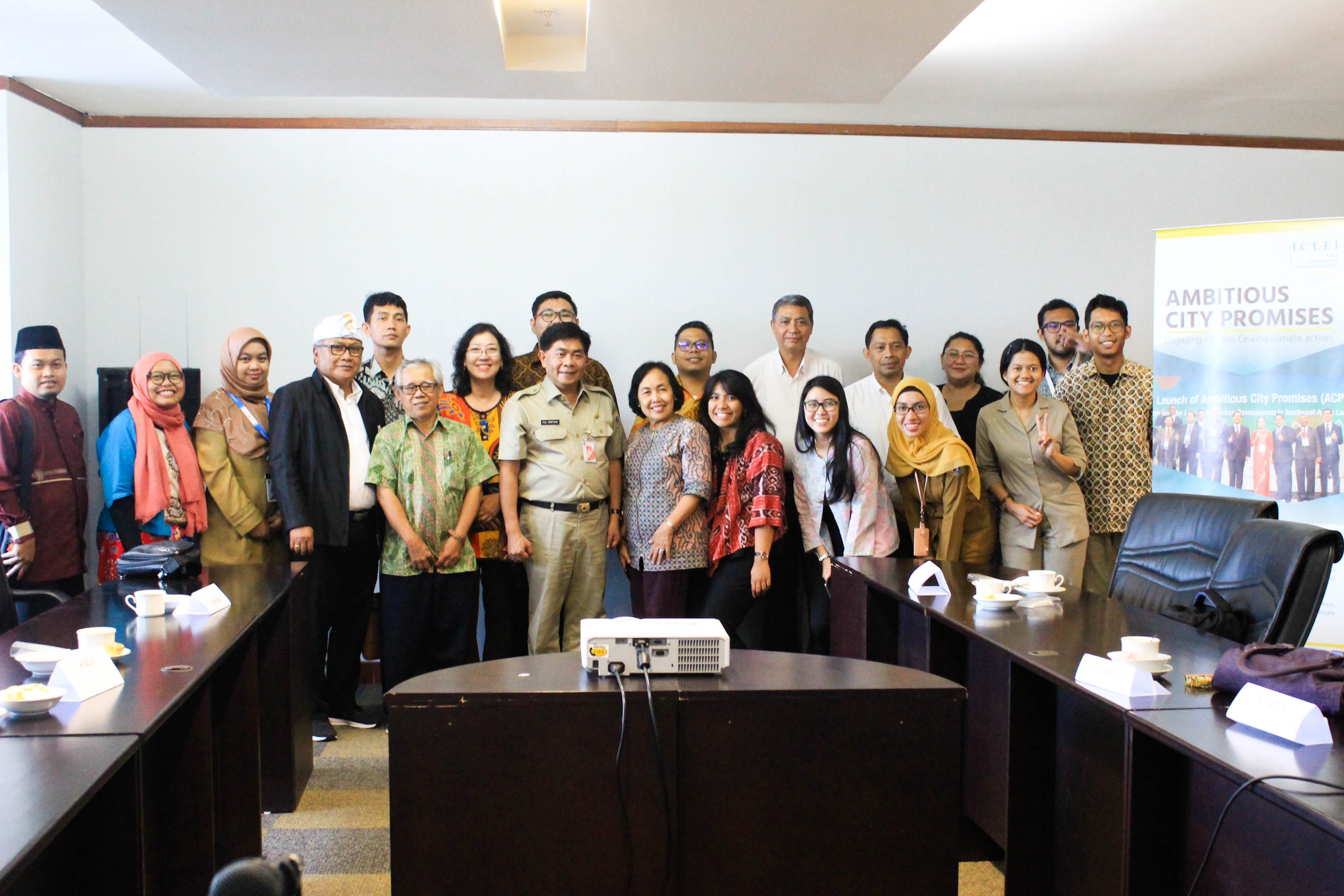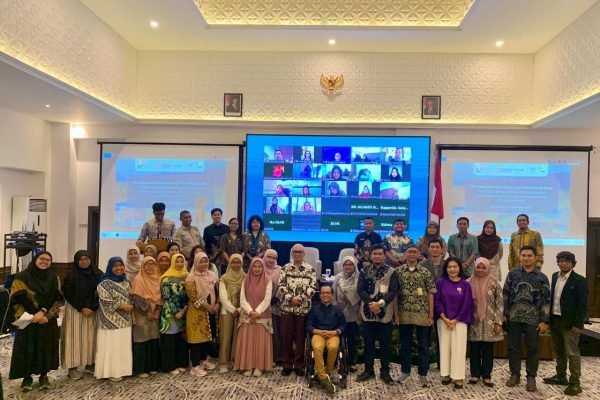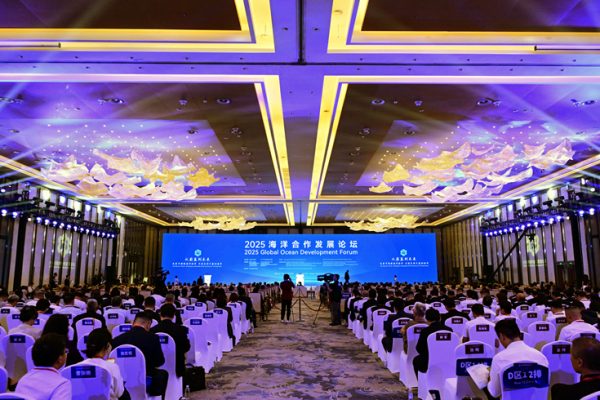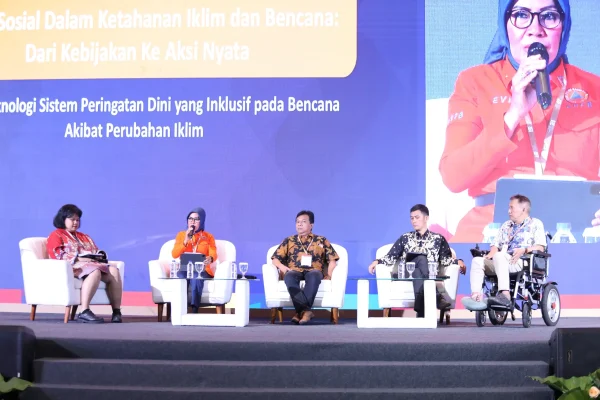Leaders of the religious sectors in DKI Jakarta have formed an interfaith coalition to address the climate crisis.
Jakarta, Indonesia – ICLEI Local Governments for Sustainability, Yayasan ICLEI Indonesia, in coordination with DKI Jakarta Provincial Government organized the Interfaith Discussion to Tackle Climate Change and Soft Launch of the Interfaith Perspective Book to Address Climate Change on 16 December 2019. This event is part of Ambitious City Promises (ACP) project, which aims to support DKI Jakarta as it strives to reduce 30% of the city’s greenhouse gas emissions by 2030.
Expressing her support for this interfaith movement, Acting Deputy Governor for Spatial Plan and Environment, Mrs. Vera Revina Sari said, “The religion approach is an effective way to mobilize its congregation by increasing awareness about climate change issues and encouraging people to change their behavior to reduce greenhouse gas emissions in Indonesia, particularly in DKI Jakarta.”
Crafting guidebooks for ecospirituality
The six religious groups in DKI Jakarta namely Islam, Protestant, Roman Catholic, Buddhism, Hinduism, and Confucianism share the same value to respect the integrity of Mother Nature and to always protect and conserve the environment. Through this interfaith coalition, three guidebooks that aim to synchronize and inform spiritual teachings will be produced.
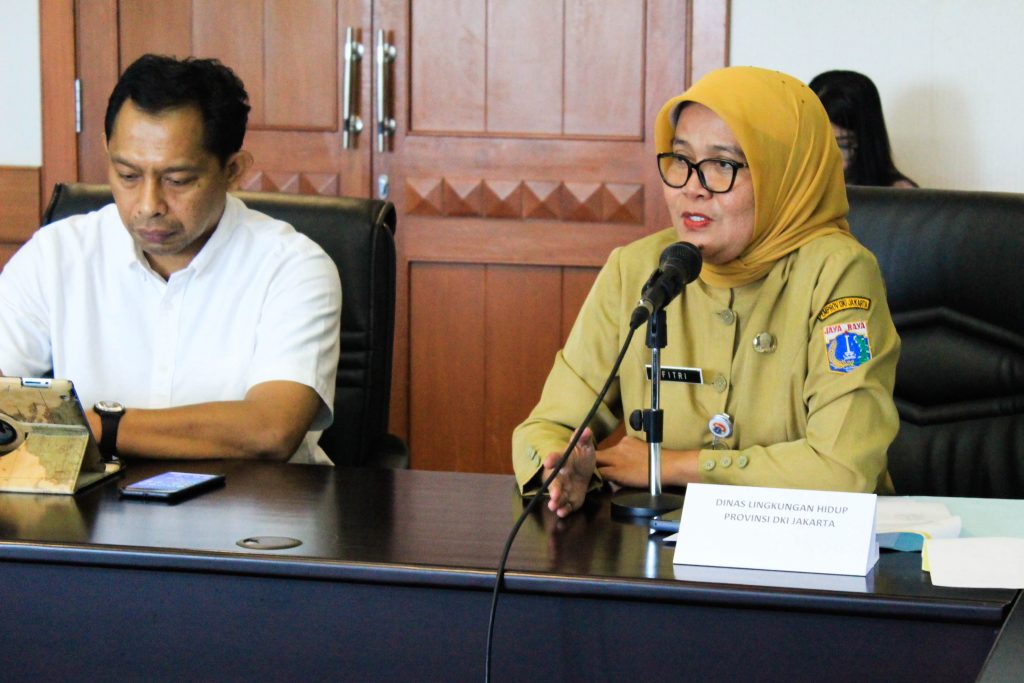
Mrs. Erni Pelita Fitratunnisa, Head of Environmental Governance and Cleanliness emphasized the important role of citizen towards low carbon development; particularly the religious sector.
The first book will focus on the interfaith perspective to address climate change and will tackle each of the six religion’s insights on the phenomena of the climate crisis. The second book will audit ecopreaching and will inform the key topics that the religious organizations can share to their congregations. The last book summarizes calls to action and will contain the best practices of guidelines to apply ecofriendly concept in the places of worship.
Each of the six religions have valuable principles and insights that enables them to integrate these into the development of the books. For example, Hinduism underscores the important connection of man and nature and followers are taught to always protect the environment.
“This perspective allows us to contribute our beliefs and insights regarding the intersection of faith and addressing climate change, “Parisada Hindu Dharma Indonesia (PHDI) representative Mr. Nyoman Widi stated.
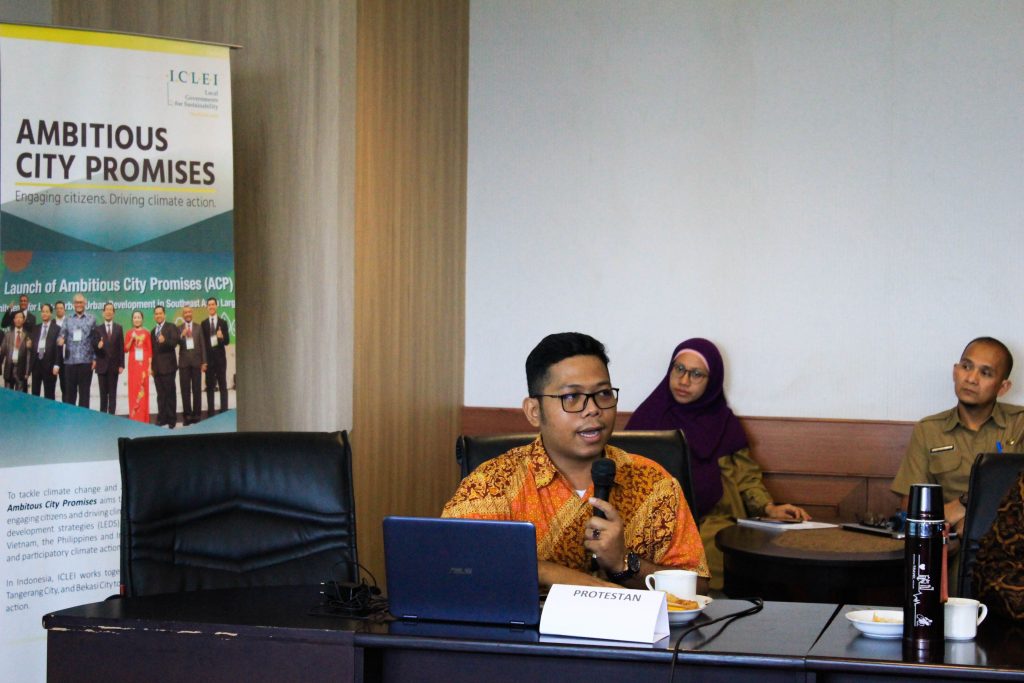
Mr. Jimmy Sormin, Executive Secretary of Witness and Integrity of Creation – Communion of Churches in Indonesia explained the concepts for EcoWorship House book that are based on perspectives from Protestantism.
Meanwhile, the representative of Buddhist Council Indonesia in Jakarta (WALUBI Jakarta) Mr. Jo Priastana noted, “When translated in the context of the environment, humans must consume as minimal as they can because the source of the suffering is greed.” This connects to the teaching that humans must only consume what they need and avoid the over exploitation of natural resources.
Once the books are ready, the religious leaders will share the modules to their congregations and encourage them to apply the teachings into their daily lives. A training of trainers is in the works to allow more religious leaders to know more about these ecomodules and use them in their teachings and lectures.
The Ambitious City Promises (ACP) project is a 3.5 year international project funded by the German Federal Ministry for the Environment, Nature Conservation, and Nuclear Safety (BMU) through the International Climate Initiative (IKI) program. It is implemented by ICLEI-Local Governments for Sustainability in close cooperation with the Seoul Metropolitan Government. The project commits to reduce GHG emissions through participatory and inclusive local climate actions in selected cities in Indonesia, the Philippines, and Vietnam.

